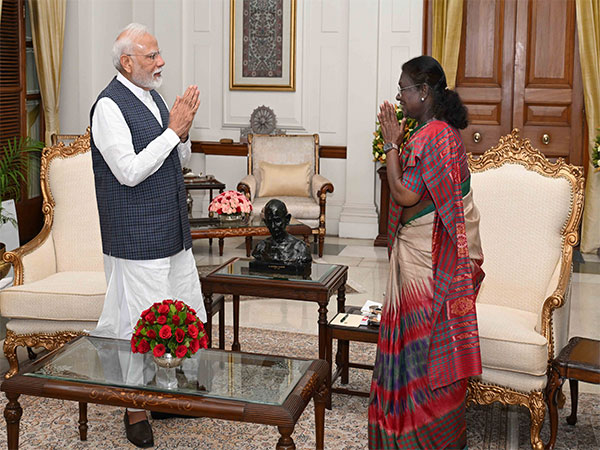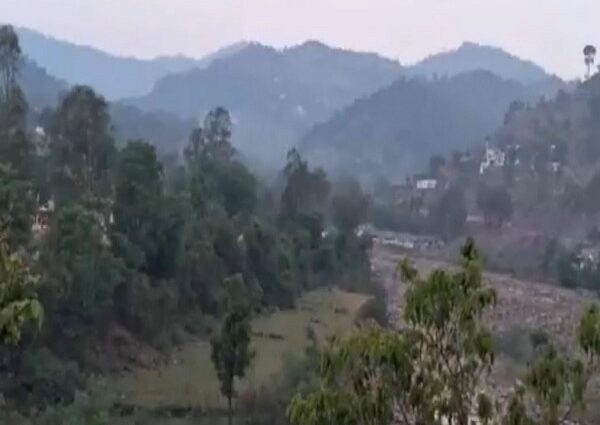Around 4 am, May 7, 2025, when the first, fated crow was about to sing its sweetest early morning song, a writer-friend called from Srinagar. Her voice sounded urgent, but not scared or desperate.
She said what seems like Chinook war helicopters seem to be hovering over her hotel, there is intense shelling at the border near Poonch, one Indian woman has been reportedly killed, the locals there have switched off their lights and have come out of their homes, and they are all crying. She said she must go there now with a journalist because she is writing a book about life and times in border areas of conflict zones.
She knows her mind. She has covered the war-ravaged borders of Afghanistan, enslaved child soldiers of blood-diamond’s bloody lanes in Sierre Leone, among other tragic zones which have left their indelible scars on the body, the mind, and the landscape. She is, obviously, a brave woman.
Operation Sindoor. In the first instance, being a small town boy from the melting-jaggery, mustard flowers, sugar cane belt of western UP, my first memory was a tacky tear-jerker called Udhar ka Sindoor, a Jeetendra-Reena Roy-Asha Parekh starrer released in 1976.
Why Operation Sindoor?
Then, as the collective of crows started waking up, and Melody Queen Koel waited for the first light of dawn, I remembered the only dead crow in Balakot, with a madrassa of small kids nearby. Reportedly only a crow was killed as collateral damage along with some trees. A crater was found. Most of the Western media reported similar ground stories — No terrorist target was hit by India in Balakot.
The mainline Indian media, especially the chest-thumping, jingoistic-jokers on TV, went berserk in celebration. So much like when the Ram Mandir was being inaugurated before the 2024 parliamentary elections, whereby, they lost so badly in Ayodhya.
Yes, we will know — by and by. The dead crow of Balakot will stand as a testimony from the past.
Poonch. The Al Jazeera report had a slug: Explosions in India-adminstered Kashmir. “Video filmed in Indian-administered Kashmir capture loud explosions and smoke around the town of Poonch near the Line of Control as Pakistan promised a “robust response” to a series of Indian attacks.
Amidst the explosions, what did I see?
Birds. And flocks of black crows flying hither and thither, desperate in the toxic haze of smoke. Almost like that ‘last painting’ of an exiled artist, picturised so beautifully, and poignantly, in that short film by great Japanese filmmaker, Akira Kurosawa, as a tribute to the solitary genius of amazingly pulsating and impossible colours: Van Gogh.
Yes, I could also hear the birds tweet. My heart beats seemed to become faster. Their tweets, as sweet as always.
The war hysteria created in India over the last few days was predictable. Apart from the eternal communal polarization card, that is their bread and butter – backed by the army of war-mongers on TV (also print), the relentless trolls, the mindless fanatics. Not one of them would ask, what any sensible journalist should have been asking — after Pulwama happened.
So, how did these armed, apparently fully-trained terrorists, enter a paradise-like, hyper-sensitive, fully protected conflict zone in the Valley, crowded by Indian tourists day after day, especially during summer, identify and kill Hindu men (also, one Kashmiri Muslim pony-wallah who died defending a Hindu family), and get away so damn easily?
Why was not even one security personnel present? Where were they, pray?
No check-posts? No barricades? No barbed wires, as in all over Srinagar, like an art intallation?
No CCTV cameras? No drones snooping in the air? No warnings to the innocent tourists? Despite a reported intel alert?
So did the PM actually cancel his visit to Kashmir, despite an ‘intel report’, as the Congress president is asking? And why did he visit Madhubani in Bihar instead, in apparent poll mode, making 56-inch threats, when he should have been with the bereaved families, or checking out the serious security lapses?
Said Mallikarjun Kharge, Congress chief (Telegraph, April 7, 2025, PTI report): “I got information that three days before the attack, an intelligence report was sent to Modiji, and that is why Modiji cancelled his visit to Kashmir… When an intelligence report says that it is not proper to visit there for your security, why did you not inform your security, intelligence, local police and the border force to protect people? When you got the information, you cancelled your programme but did not send more forces to protect tourists there…”
Or, did Pahalgam remind of the ‘shoot’ happening in a wild life sanctuary, while 40 soldiers were butchered on a highly protected highway in Pulwama?
In the first instance, why were they not air-lifted? Why choose a long road which could be dangerous? Is the then governor, correct, when he makes such serious allegations? How come a lone suicide bomber rode an SUV with loads of RDX, (perhaps on the wrong side?), bypass the armed check-posts, the cameras, the armed patrols, and hit the convoy, as in a C-grade Hollywood movie?
Remember that famous interview done with great scientific gravitas given to a TV channel? The PM said: “The weather suddenly turned bad, there were clouds… heavy rain. There was a doubt about whether we can go in the clouds. During a review (of the Balakot plan), by and large the opinion of experts was — what if we change the date. I had two issues in mind. One was secrecy… second, I said I am not someone who knows the science. I said there is so much cloud and rain. There is a benefit. I have a raw wisdom, the clouds can benefit us too. We can escape the radar. Everyone was confused. Ultimately I said there are clouds… let’s proceed.”
Besides, soon after the Pulwama killings, the Congress had alleged that the PM was shooting a “promotional film” at the Jim Corbett National Park at a time when the country was mourning. Government sources denied the charge. There was a 25-minute delay in informing him because of bad weather and poor network coverage, they said.
It was great to see the briefing on ‘Operation Sindoor’ by two women officers — Wing Commander Vyomika Singh and Colonel Sofiya Qureshi. Media reports claim that the name of the operation was a tribute to the women who lost their husbands in the terror attack. Choosing two young women officers too was praised as part of the same thread.
“Terror targets were chosen based on credible intelligence and their involvement in cross-border terrorism. No military installation was targeted in Pakistan during Operation Sindoor,” Colonel Sofiya Qureshi said, speaking after Foreign Secretary Vikram Misri. She also announced that nine terrorist camps were destroyed.
Earlier, the army had issued a balanced statement, saying the missile attacks were “focused, measured and non-escalatory”. All the three terms are strategic, implying that no civilian or military positions were intentionally targeted – and that this is not a declaration of war.
Meanwhile, Pakistan has claimed to have shot down three Indian jets. India has made no such claims. One, they claimed, was shot down near Bhatinda. Reports say that Akali Khurd, a village near Bathinda, witnessed an aircraft crash around 2 am on Wednesday. One labourer has been killed, and several injured.
Besides, the Organisation of Islamic Countries (OIC) have apparently slammed the Indian attack (with potential fall-outs in the Middle-East), Donald Trump is in the loop saying this fight has been on for “many many decades and centuries”! “I hope it just ends very quickly,” he said. The Western countries have asked for restraint, and so has the UN, with its Security Council reportedly closeted on this issue.
Predictably, some women have reacted to the term ‘Operation Sindoor’. One journalist posted the pictures of the men killed in Pahalgam in a social media post with a cryptic comment: Were they all only husbands? There was a father, brother and son too. Operation Sindoor reeks of patriarchy, avenging woman’s honour, etc. Others have called it regressive, sindoor and mangalsutra, that is all they think of, when it comes to women.
Others have argued that this is an old ploy. If men are killed or targeted, let the women be weaponised. Use women as weapons of war, morally, emotionally, as propaganda, as battle.
A social media post by a woman said: On principle, I object strongly to the label Operation Sindoor. It reeks of patriarchy, ownership of women, “honour” killings, chastity, sacralising the institution of marriage, and similar Hindutva obsessions.
In response, another woman posted: Particularly after several Indian men were shaming the wife of an officer killed in the attack just because she requested peace to be maintained within communities and nations.
(The views expressed in this article are those of the author and do not necessarily reflect the views of LokMarg)








